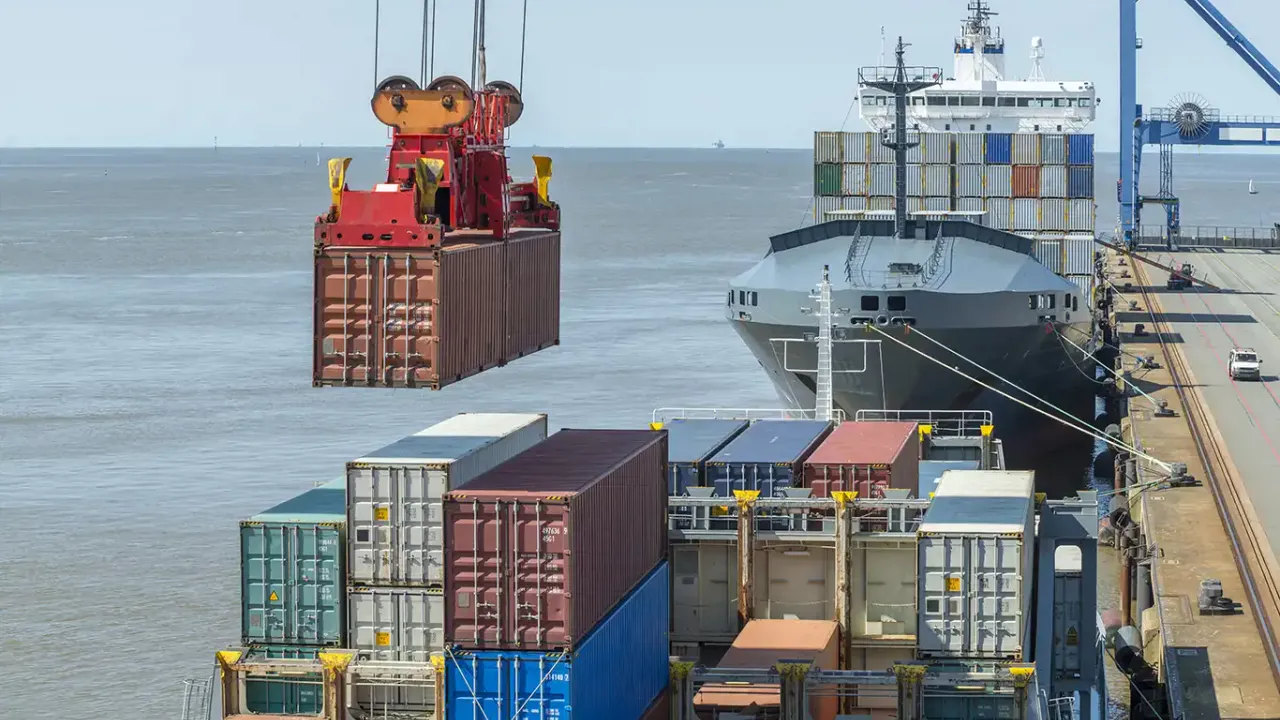This data indicates a challenging trade environment for Turkey, which has implications for its economic outlook.
In a statement released on Tuesday, the Turkish Statistical Institute, in collaboration with the Ministry of Trade, shared provisional data for September 2023. The figures showed that Turkish exports amounted to $22.49 billion, representing a minor 0.5% decrease when compared to September 2022. Meanwhile, imports totaled $27.50 billion, marking a more significant drop of 14.6% during the same period.
The data for the January to September 2023 period revealed that exports reached $187.20 billion, experiencing a 0.5% decline, while imports increased by 1.2% to $274.43 billion in comparison to the same period in 2022.
Excluding energy products and non-monetary gold, exports in September 2023 decreased by 2.3%, amounting to $20.26 billion. Imports, excluding the same categories, reached $20.28 billion, reflecting a 1.5% decrease.
The foreign trade deficit, excluding energy products and non-monetary gold, was a mere $19 million in September 2023. The overall foreign trade volume in September was $40.54 billion, declining by 1.9%, with export coverage of imports, excluding energy products and non-monetary gold, standing at 99.9%.
Importantly, there was a notable positive development as the foreign trade deficit decreased significantly by 47.8% in September 2023 compared to the same month in 2022. Exports covered 81.8% of imports in September 2023, a substantial improvement from the 70.2% coverage in September 2022.
However, in the broader context of January to September 2023, the foreign trade deficit increased by 4.9%, reaching $87.23 billion. During this period, exports covered 68.2% of imports, down from 69.3% in January-September 2022.
The composition of exports in September 2023 showed that manufacturing industries products constituted the majority at 94.1%, with agriculture, forestry, and fishing at 4.0%, and mining and quarrying at 1.4%. Over the entire January-September 2023 period, the ratios were similar at 94.5%, 3.5%, and 1.5%, respectively.
Imports in September 2023 primarily consisted of intermediate goods at 71.3%, followed by capital goods at 14.9% and consumption goods at 13.7%. In the January-September 2023 period, these ratios were 73.5%, 13.9%, and 12.5%, respectively.
Germany emerged as the leading partner for Turkish exports in September 2023, with $1.75 billion, followed by the USA with $1.20 billion, Iraq with $1.19 billion, Italy with $1.09 billion, and the United Kingdom with $1.06 billion. These top five countries collectively accounted for 28.1% of total exports in September 2023. In the broader January-September 2023 period, Germany remained the primary export partner with $15.90 billion, with the USA, Italy, the United Kingdom, and Iraq following closely behind, contributing to a 28.9% share of total exports.
On the import side, China was the leading partner in September 2023, accounting for $3.73 billion, trailed by Russia with $3.13 billion, Germany with $2.36 billion, the USA with $1.25 billion, and the UAE with $1.18 billion. The top five countries formed 42.3% of total imports in September 2023. Over the longer period of January-September 2023, Russia led with $34.70 billion in imports, with China, Germany, Switzerland, and the USA making up 43.3% of total imports.
In terms of seasonally adjusted data, exports increased by 1.7% in September 2023, while imports decreased by 6.5% compared to the previous month. Calendar adjusted exports rose by 2.0%, and imports decreased by 12.7% compared to September 2022.
The report also touched on the ratio of high-tech products in manufacturing industries. In September 2023, this ratio was 4.1%. For the entire January-September 2023 period, the ratio was 3.6%.
The trade data suggests a mixed economic landscape for Turkey in September 2023, with declining exports and a substantial drop in imports. The significant decrease in the foreign trade deficit for the same period is a positive development, yet challenges in the trade sector persist. The performance of Turkey's trade partners and the overall global economic climate will likely influence the country's future trade dynamics. (ILKHA)









